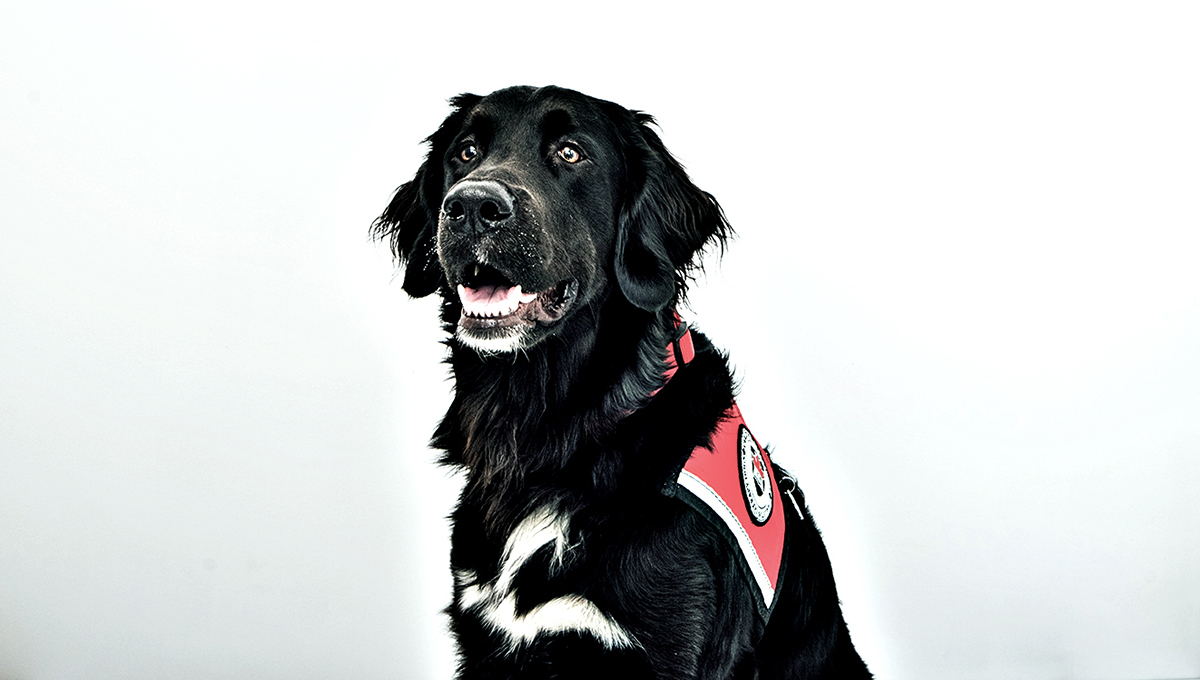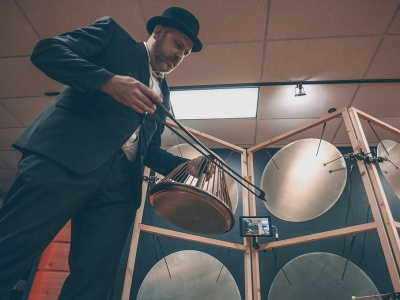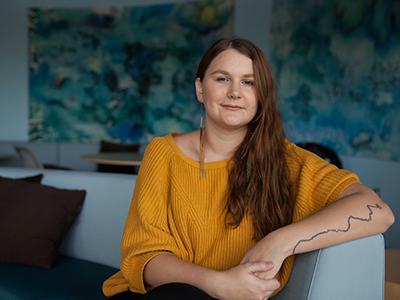By Joseph Mathieu
Photos by Martin Lipman
A dozen years ago, when Allie Davidson was an undergraduate psychology student, she would have loved Carleton’s Therapy Dogs program.
Davidson, who now works in the university’s Educational Development Centre, enrolled at Carleton through the Enriched Support Program, which helped her feel more confident about her studies and smoothed the transition from high school to post-secondary.
The Therapy Dogs program, which started as a pilot project in 2017 with a Great Dane/Pointer mix named Blue, gives students an opportunity to pet and play with trained dogs — a calming, therapeutic experience for students who might be away from home and family for the first time or stressed in some way about the challenges of university life.
Over the last two years, the program has expanded to include 15 dogs and their handlers, all Carleton staff or faculty who bring their own dogs to campus, which distinguishes the program from other universities where external volunteers visit with their pets.
Davidson regularly ran into Blue and his owner, Shannon Noonan, a mental health outreach manager in Carleton’s Office of Student Affairs and founder of the Therapy Dog program, and knew she had to get involved.
“The only problem,” says Davidson, “was that I didn’t have a dog.”
Enter Murphy.
Davidson — already a horse owner dedicated to studying the psychology of animal-human relationships, which she believes has a bearing on the instructor-student dynamic — got the jet black Golden Mountain mix puppy in January 2018 and he immediately began to display the right stuff: a good temperament, a willingness to learn and a talent for affection.

The Youngest Therapy Dog on Campus
After six weeks of training and two formal evaluations, Murphy became Carleton’s youngest therapy dog last September. (“I pretty much love everything in the world,” Murphy says in his online profile, which includes a link to his Instagram page. “I love humans, I love other dogs and animals, I love walks, I love cuddles, I love doing tricks, I love all foods, and even though I don’t know you yet, I’m pretty sure that I’m going to love you too.”)
Although every other therapy dog on campus has scheduled hours in locations such as the main library for students or staff to stop by and spend time with a friendly pooch, providing a few minutes of respite and a chance to connect with a range of university wellness services, Murphy has a unique role as a mobile dog. He and Davidson are available during the office hours of five different professors.
“Approaching a professor can be intimidating, especially in a large undergraduate course,” says Davidson.
“Knowing there will be a friendly dog in the office can help ease the anxiety a student might feel. He can help students connect with their instructors on a different level.”
Participating in the program has also provided unexpected connections for Davidson, who has to budget extra time during her walks across campus with Murphy — some students call out his name and stop the pair, and she invites the shyer ones to approach.
Davidson’s job is to help instructors use technology in their teaching, which doesn’t lead to interactions with students. “Now, with Murphy tugging me around, I recognize students and they recognize me all the time, and they say hello and we talk,” she says. “I’m not just an anonymous person in the coffee lineup anymore. This was a way for me to get to know and help students in a way that goes beyond my regular role.”
Thursday, January 9, 2020 in Short Reads
Share: Twitter, Facebook



